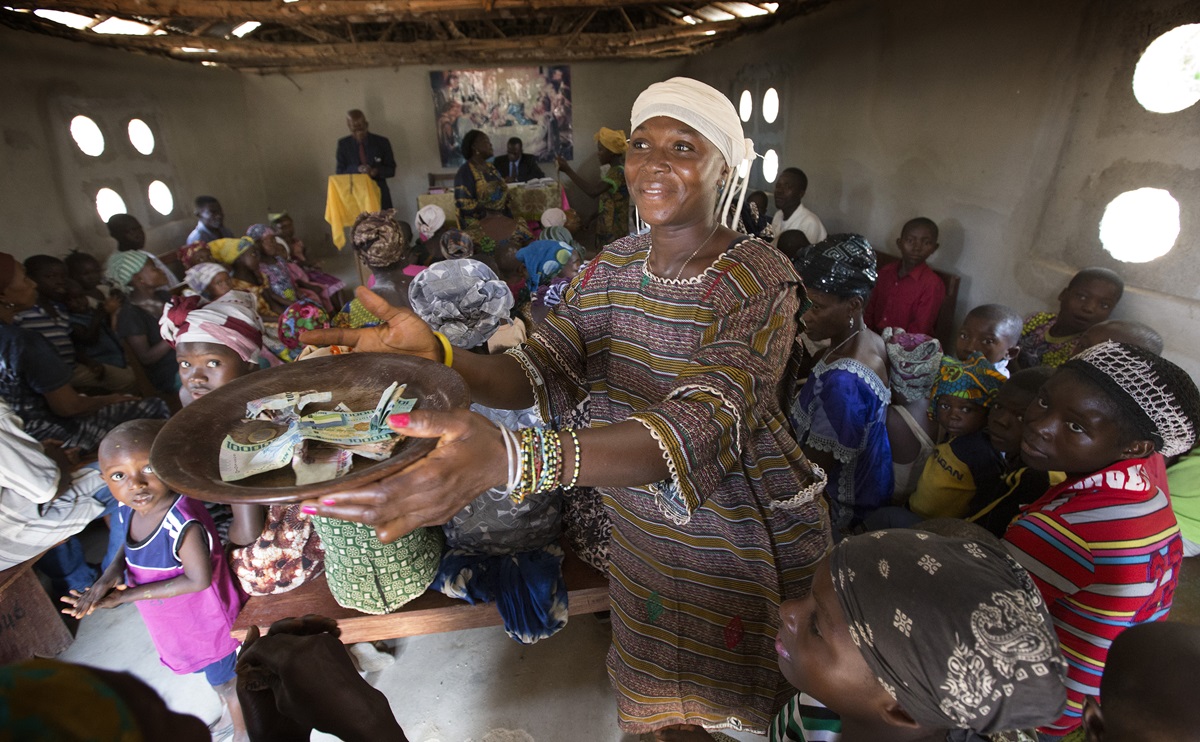For the first time, United Methodist churches around the world would have a set formula to financially support the denomination’s global ministries, under a plan going before the 2016 General Conference.
The board of the denomination’s finance agency on May 20 approved a proposal for apportionment giving from the central conferences – the seven church regions in Africa, Europe and the Philippines.
“Central conferences want to participate (in giving), and they need a system to do that,” said Moses Kumar, the General Council on Finance and Administration’s top executive. He added that he has already heard from supportive laity and clergy, including bishops.
Apportionments are the share each annual conference or local church pays to support international, national and regional missions. There are 76 annual conferences within the central conferences.
United Methodist leaders around the globe consider the formula a crucial part of living into denomination’s global nature. The church continues to grow worldwide, especially in Africa.
To go into effect, the formula needs the approval of General Conference, the denomination’s top lawmaking assembly, when it next meets May 10-20, 2016, in Portland, Oregon.
The 39-member Standing Committee on Central Conference Matters is co-sponsoring the legislation. It is the only denominationwide body with a majority of members from outside the United States.
The Rev. Dustin Petz, a finance agency board member, said the formula is intended to meet two goals: Increase giving to the general church, and take the first step toward a global apportionment system that works “on a shared, rationale and equitable basis.”
Ultimately, Kumar told United Methodist News Service, the finance agency is working toward recommending a single apportionment formula that would work around the globe.
More than 40 percent of the 12.8 million United Methodists now live outside the United States, and consequently, more than 40 percent of General Conference delegates come from the central conferences.
How apportionments work now
At this point, central conferences voluntarily contribute about $950,000 a year to support the denomination’s bishops. However, the finance agency points out, this giving often goes unrecognized across the denomination because it is not an apportionment.
United Methodists in the United States now support more than 90 percent of what the denomination budgets for general church ministries around the world. Currently, only the U.S. has a set formula for giving.
The plan going before the 2016 General Conference would change that.
Under the proposal, central conference apportionments would contribute to two of the seven general church funds — the Episcopal and General Administration funds. That money supports the work of bishops and the operations of denominationwide administrative bodies, including General Conference.
How the formula would work
For the past three years, the finance agency staff and board members have looked at a variety of ways to calculate the apportionment formula.
In the United States, the finance agency requests apportionments from each annual conference based on a formula that includes its local church expenditures, local church costs, the economic strength of the conference and a base percentage approved by General Conference.
The finance agency board recommends a different formula for central conferences, many of which are in developing countries. The formula for giving outside the U.S. would begin with the U.S. apportionment for the Episcopal and General Administration funds – $4.24 per member.
That base of $4.24 would be multiplied by an annual conference’s membership, which is the most accessible and reliable data available. Finally, that number would be modified by the gross domestic product per capita of the central conference where that annual conference is located.
For example, under the formula, apportionments for the conferences in the Philippines would be about 52 cents per member, or 12.3 percent of what is requested in the United States.
The finance agency projects that requested apportionments will be slightly more than $1 million a year, or about $4 million over four years.
The General Council on Finance and Administration board and Connectional Table are proposing to General Conference a budget of $611 million for general church funds in 2017-20.
Under the proposed formula, conferences in the Philippines would pay nearly 200 percent of what they do now, and African annual conferences would pay more than 300 percent. However, the plan asks conferences in Europe to pay 73 percent less.
European church members have already said that they do not want to reduce giving and, indeed, plan to give more.
Per Endre Bjornevik, a finance agency board member from Norway, said some European conferences already plan to give more than double the requested apportionments.
“It is currently not recognized what some conferences are paying,” he said. “Now we’ll be part of the system that is recognized.”
Passing constitutional muster
United Methodist clergy and laypeople around the globe have been asking for ways to contribute more to the general church. The denomination’s finance agency for years has looked for ways to make that happen given the varying economic realities.
An earlier effort ran into a snag.
In 2012, the Judicial Council — the denomination’s top court — struck down General Conference legislation that would have allowed the finance agency to negotiate apportionments from central conferences.
The court ruled that the finance agency had the authority to recommend apportionment formulas for General Conference’s approval. However, the court concluded that the denomination’s constitution did not allow General Conference to delegate authority for the agency to negotiate apportionments.
If the 2016 General Conference actually approves a set formula, Petz told fellow finance agency board members, that fixes the constitutional issue.
Hahn is a multimedia news reporter for United Methodist News Service. Contact her at (615) 742-5470 or newsdesk@umcom.org.
Like what you're reading? Support the ministry of UM News! Your support ensures the latest denominational news, dynamic stories and informative articles will continue to connect our global community. Make a tax-deductible donation at ResourceUMC.org/GiveUMCom.




